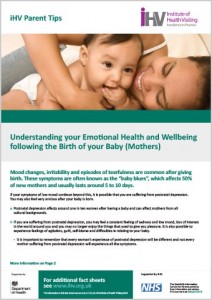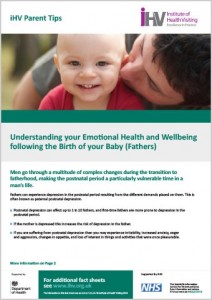As Sport Relief announces their campaign to raise the profile of maternal mental health, the Institute of Health Visiting (iHV) highlights the vital role that health visitors have in supporting parents with perinatal mental ill-health, yet they currently have insufficient time or capacity for this important task.
Health visitors are the largest public health workforce. Through their delivery of services to every family with pre-school children, they are the best-placed public health professionals to identify, manage and provide early support for mothers and fathers with mild to moderate perinatal mental health problems and to seek early specialist help for those with more serious conditions.
In addition, health visitors are the trusted source of support for families according to research by the Early Intervention Foundation (2015). When parents were asked who they turned to for support, over 60% said their health visitor, closely followed by family and friends.
Dr Cheryll Adams, Executive Director of the Institute of Health Visiting, said: “Although parents will turn to their health visitor for support, often there is insufficient time for the health visitor to do an assessment. In a recent iHV survey, the results showed that 68% of health visitors have seen an increase in postnatal depression over the last two years. However, 1 in 4 health visitors cannot provide every family with a postnatal mental health (PMH) assessment at 6-8 weeks, and 3 in 4 cannot at 3-4 months as recommended by the Healthy Child Programme.
“While these figures have improved from previous years due to the investment in health visiting by the government, they make clear that sustained investment is needed to ensure that every mother has access to prompt help.”





